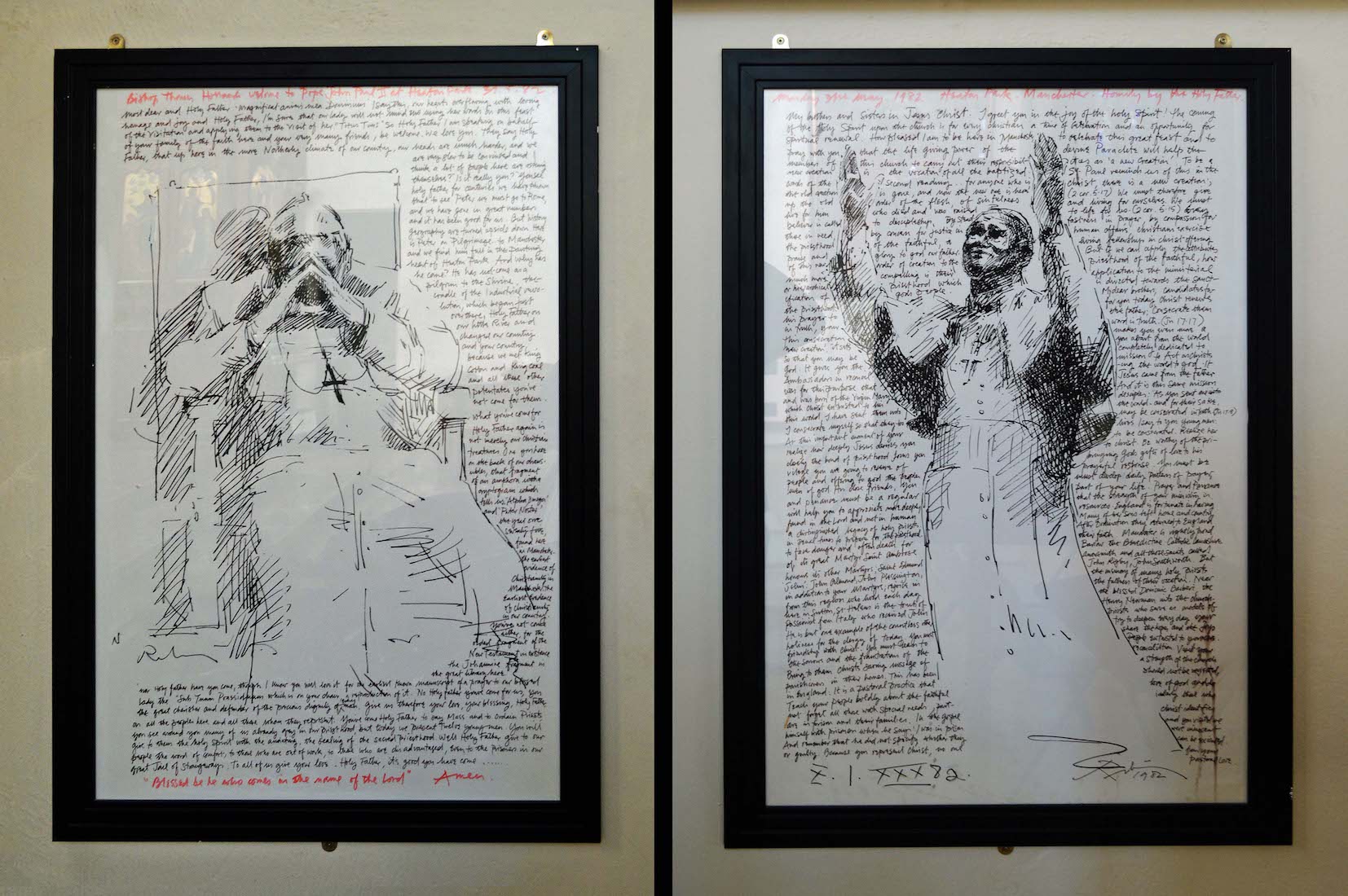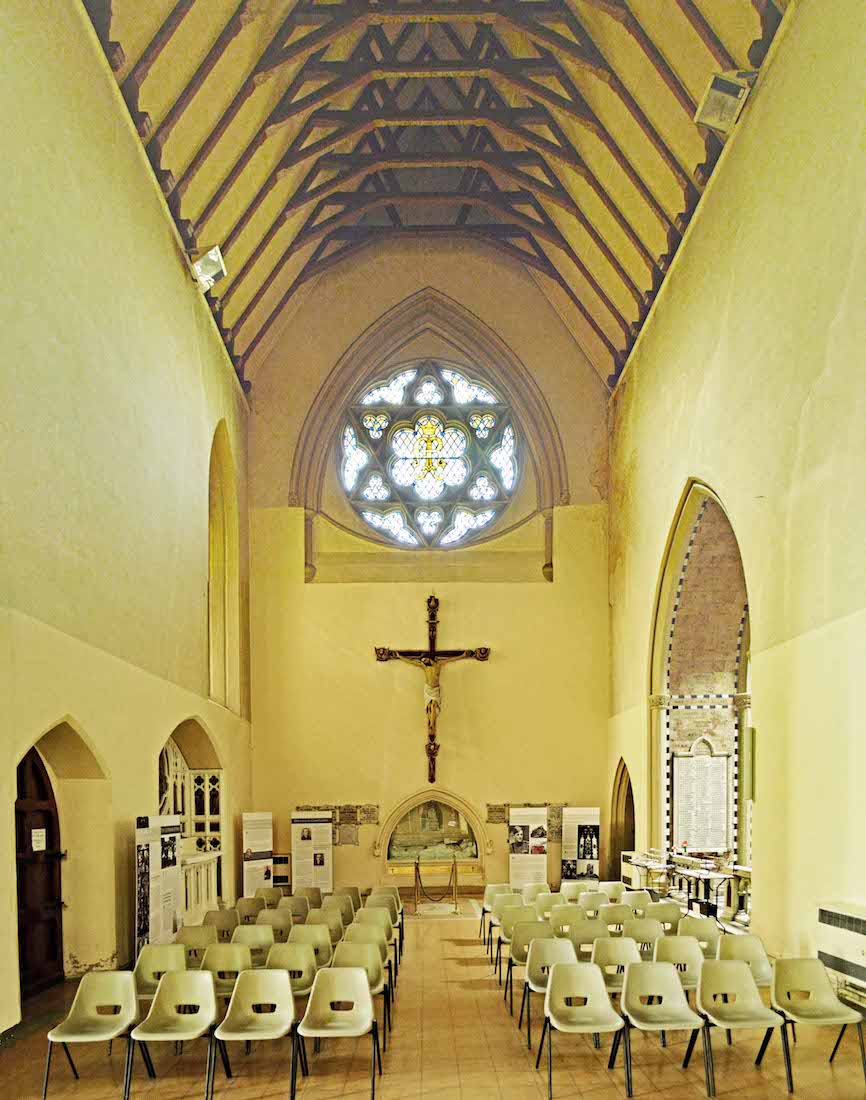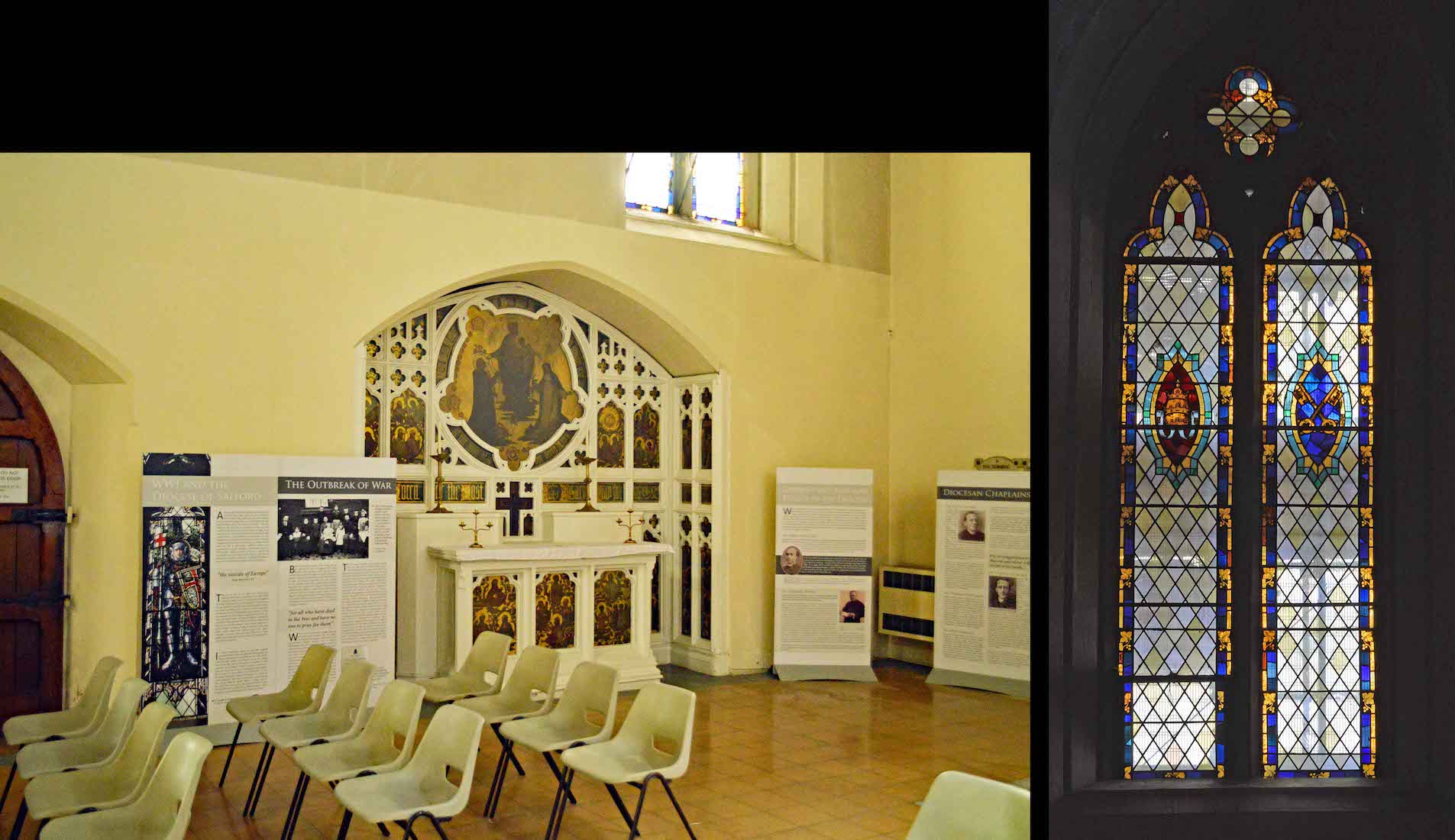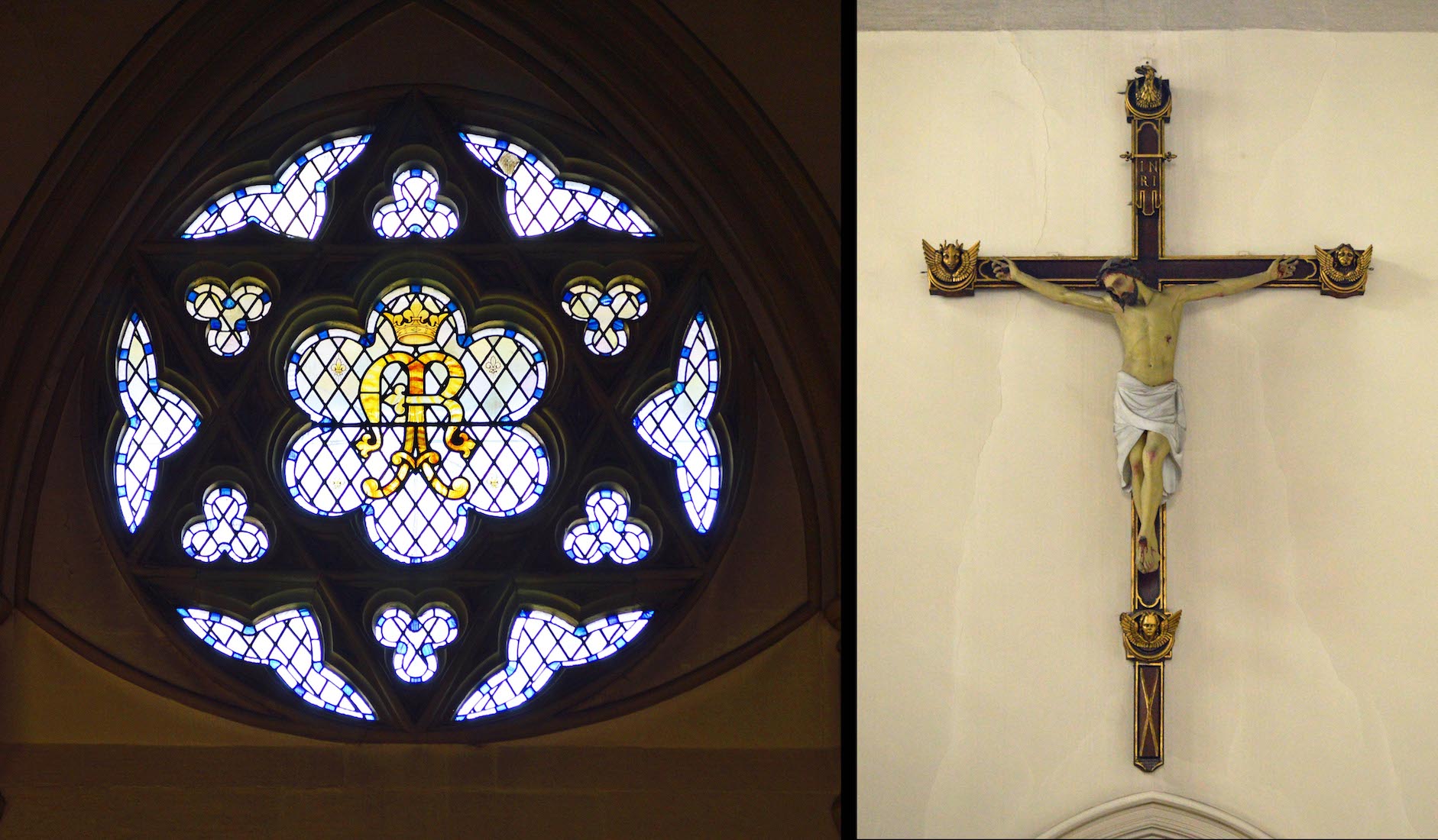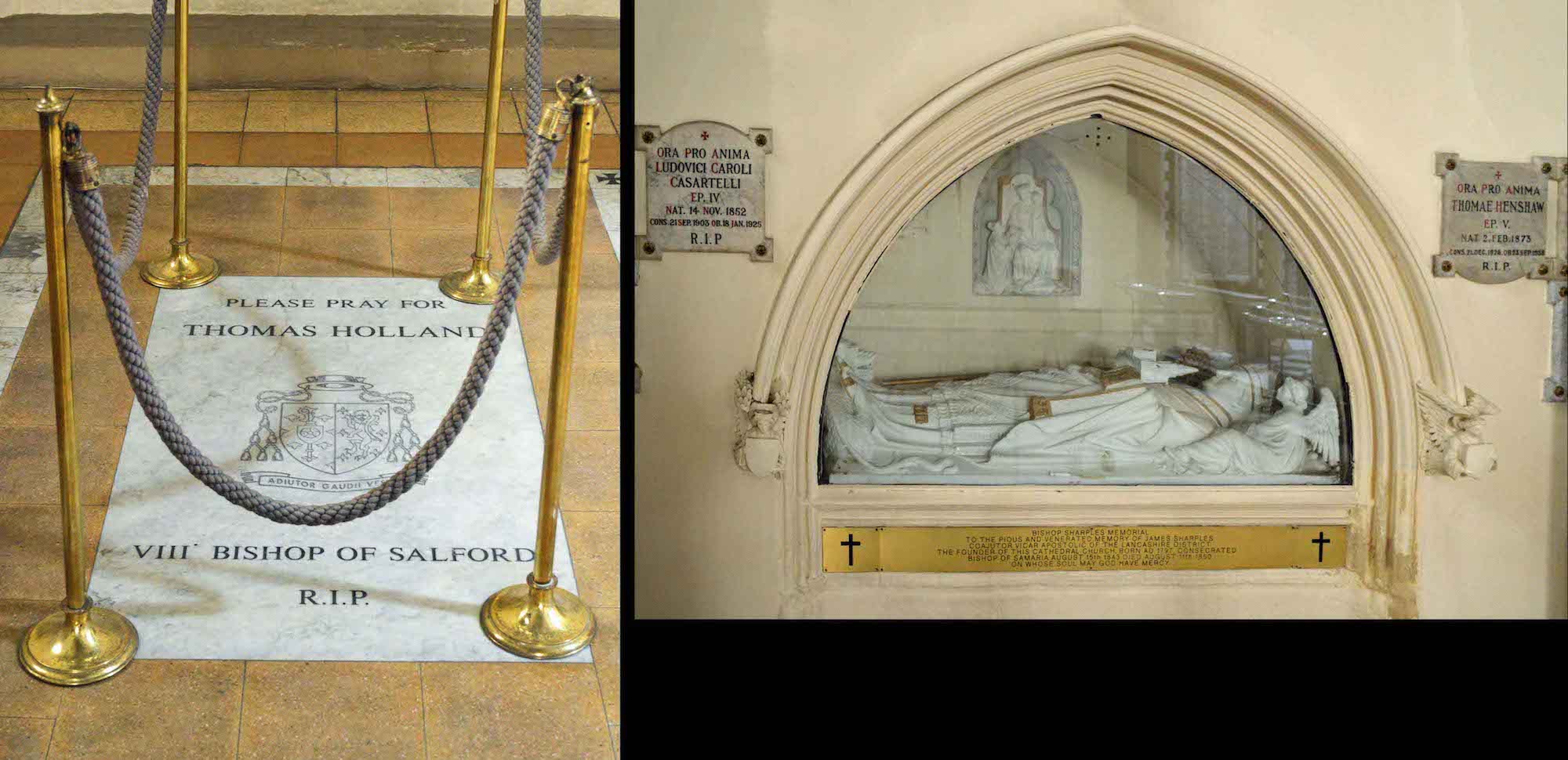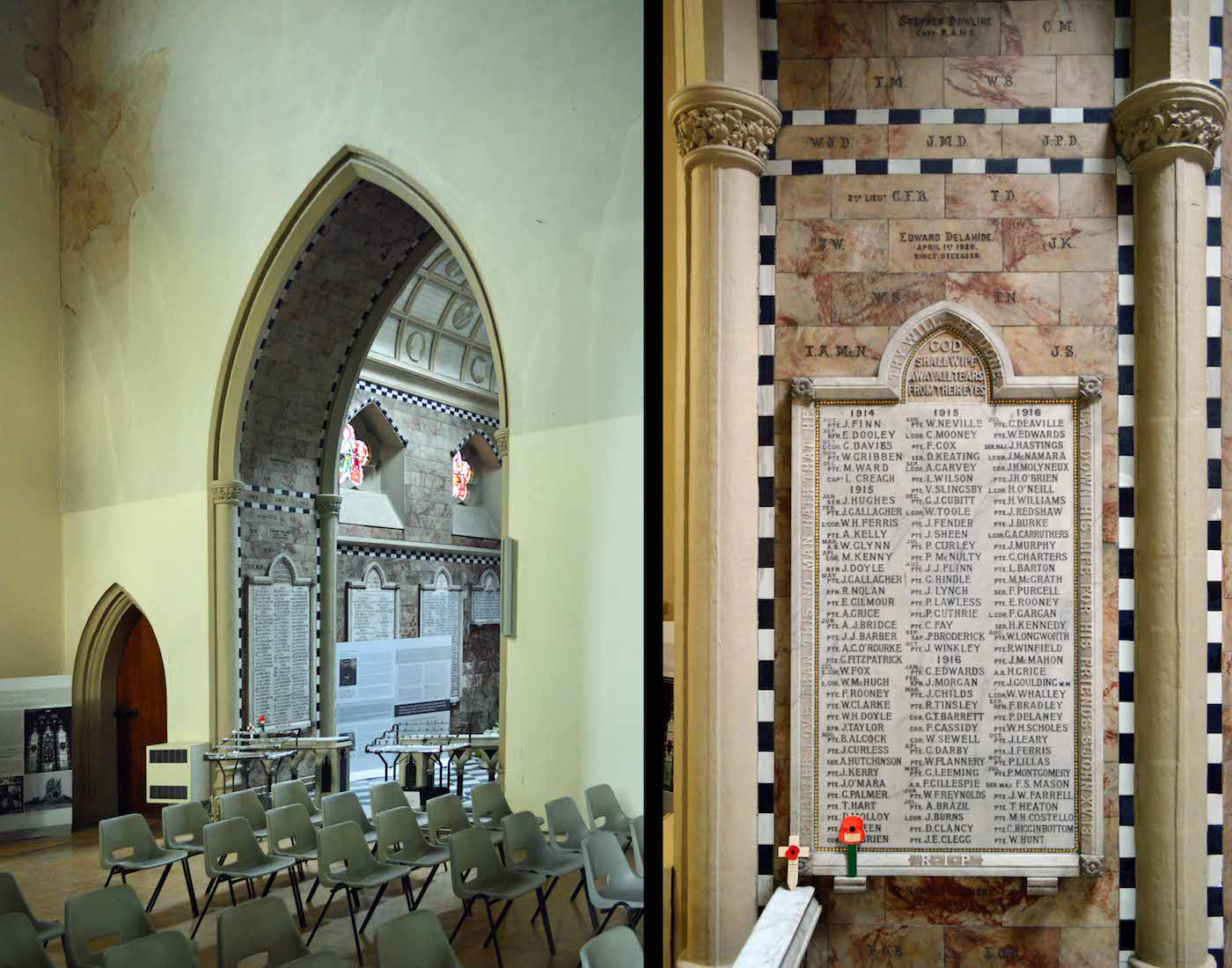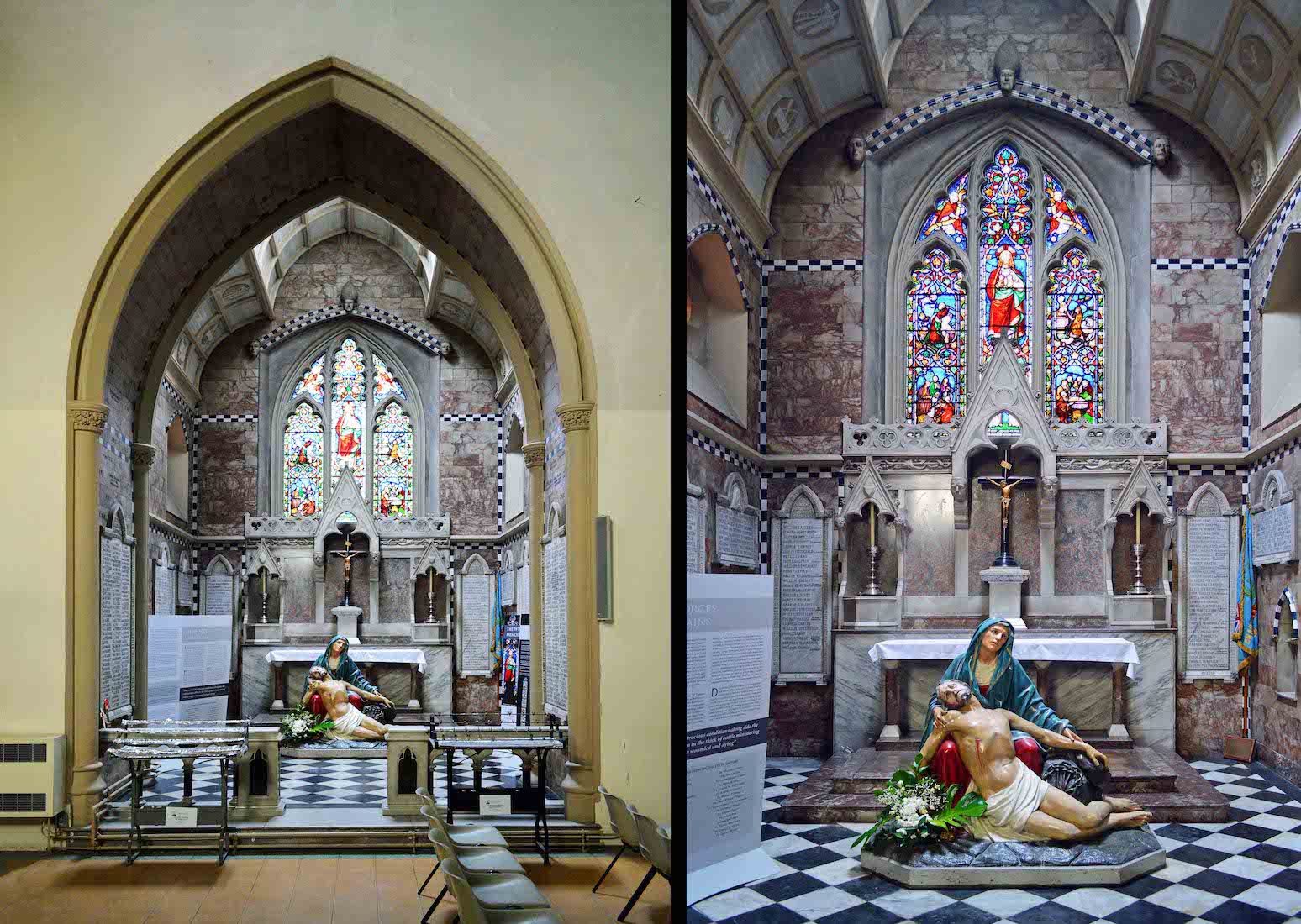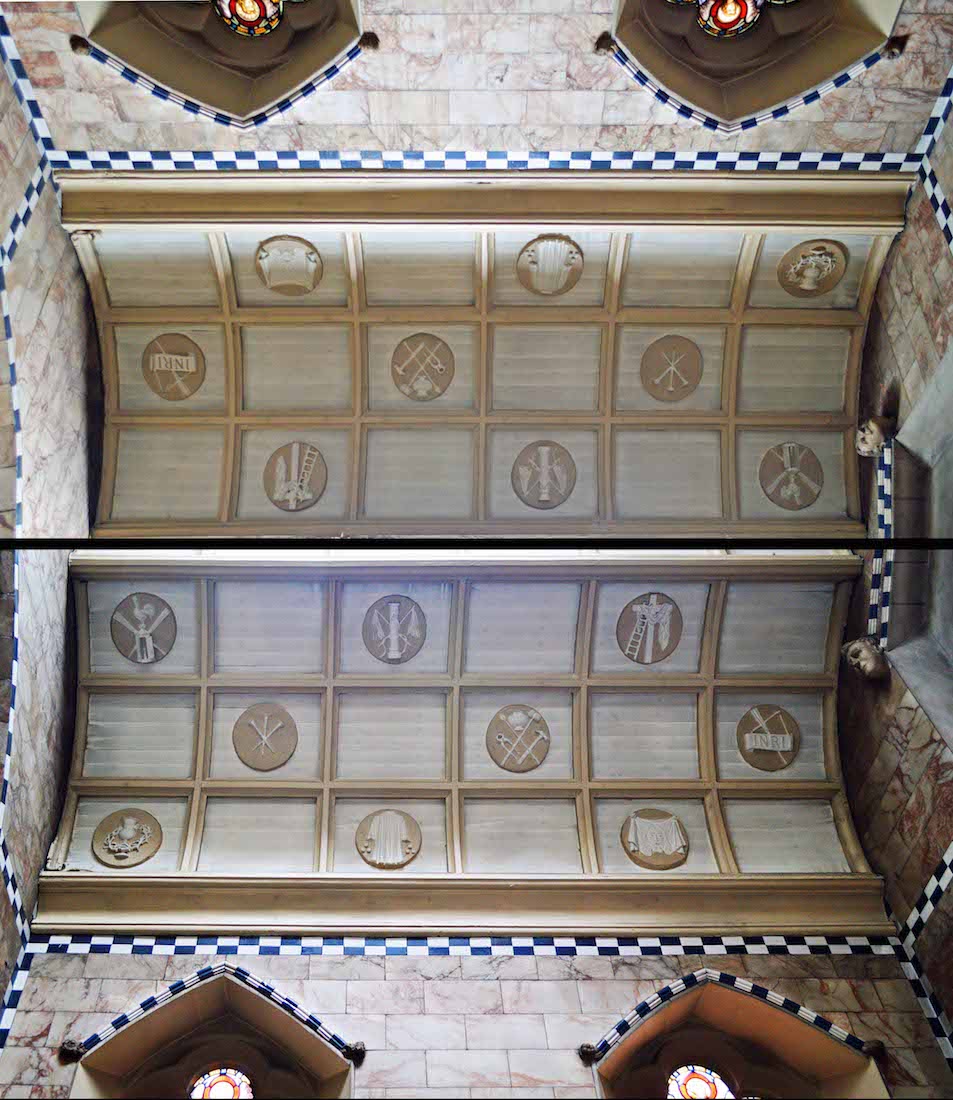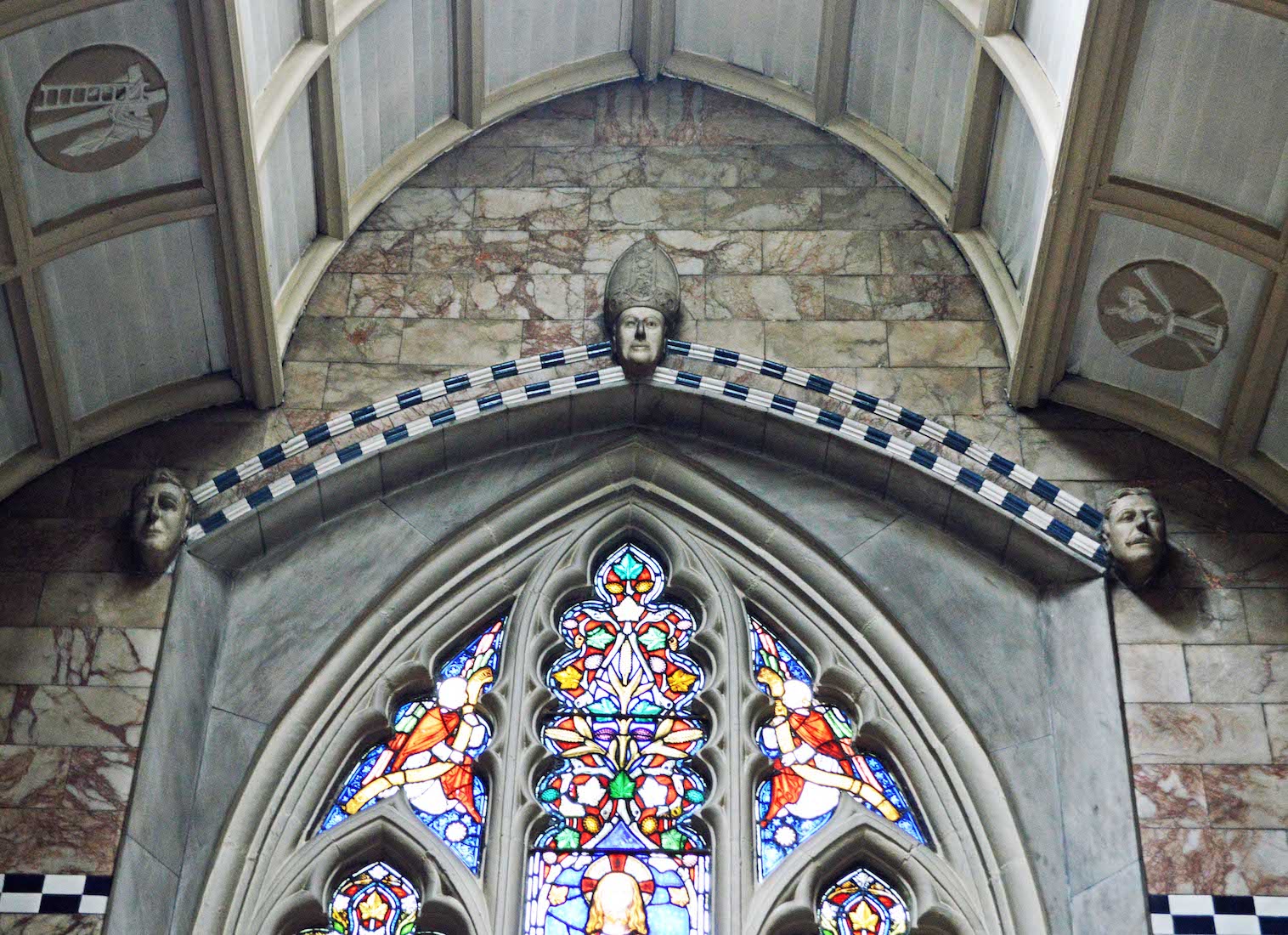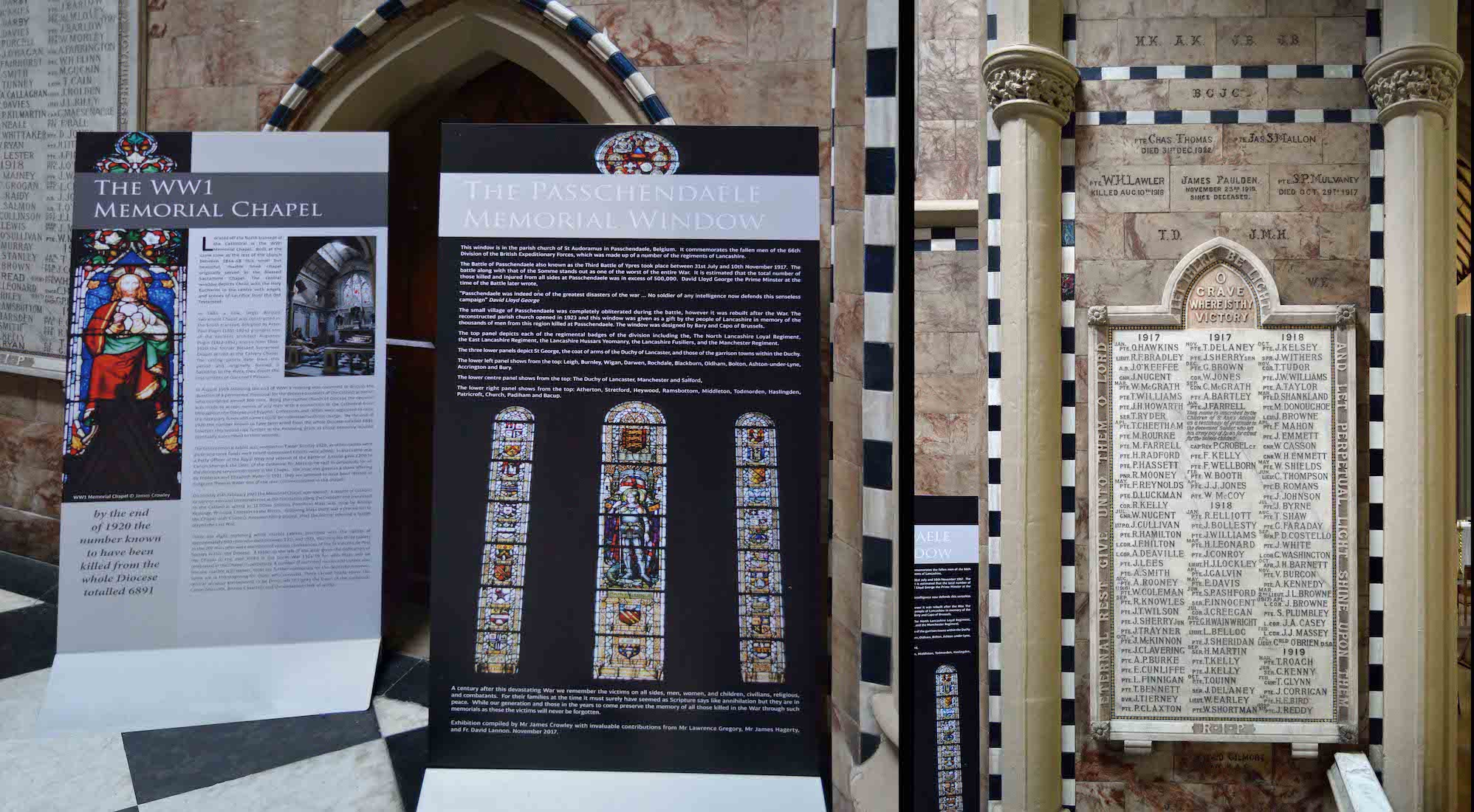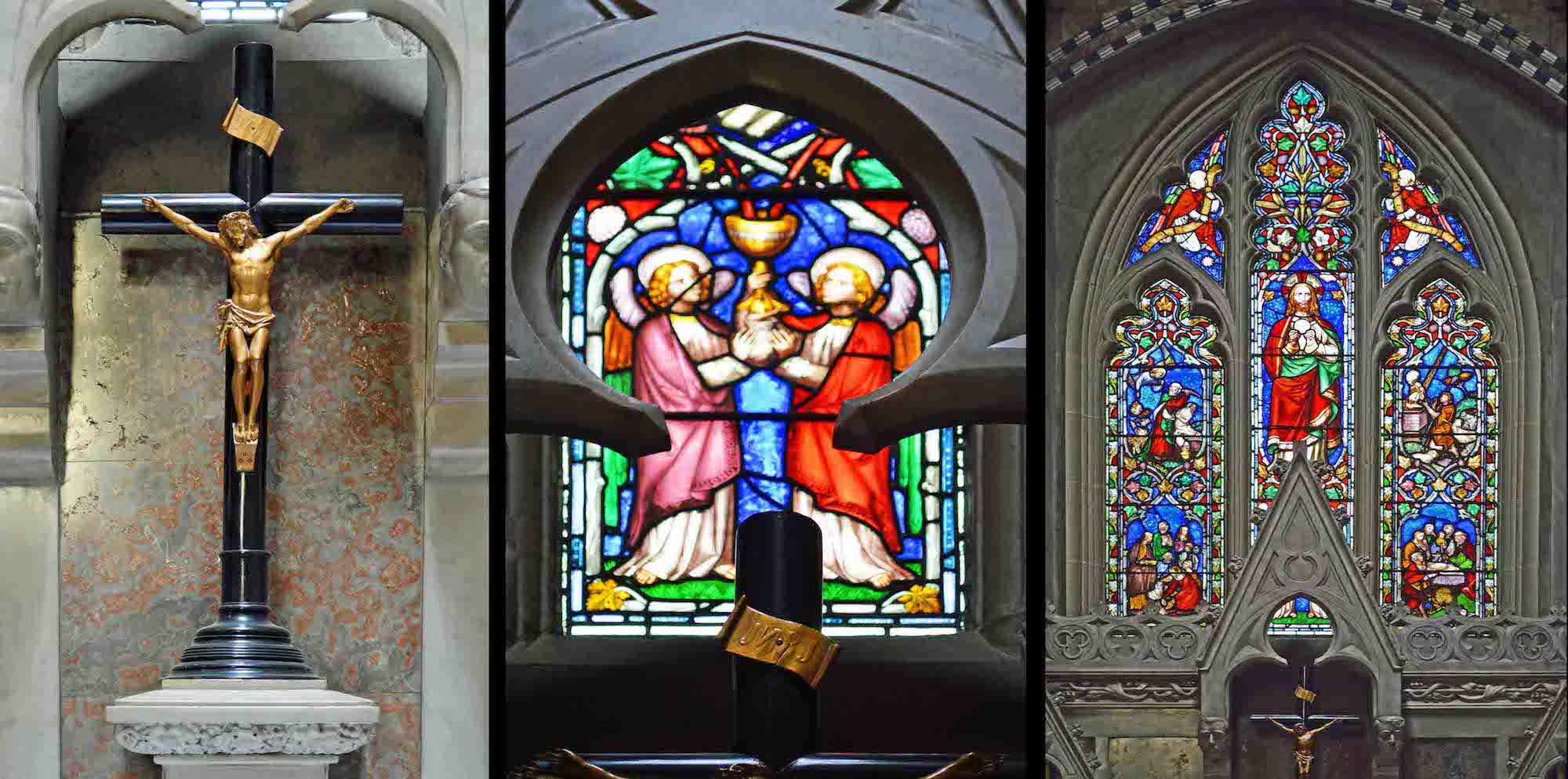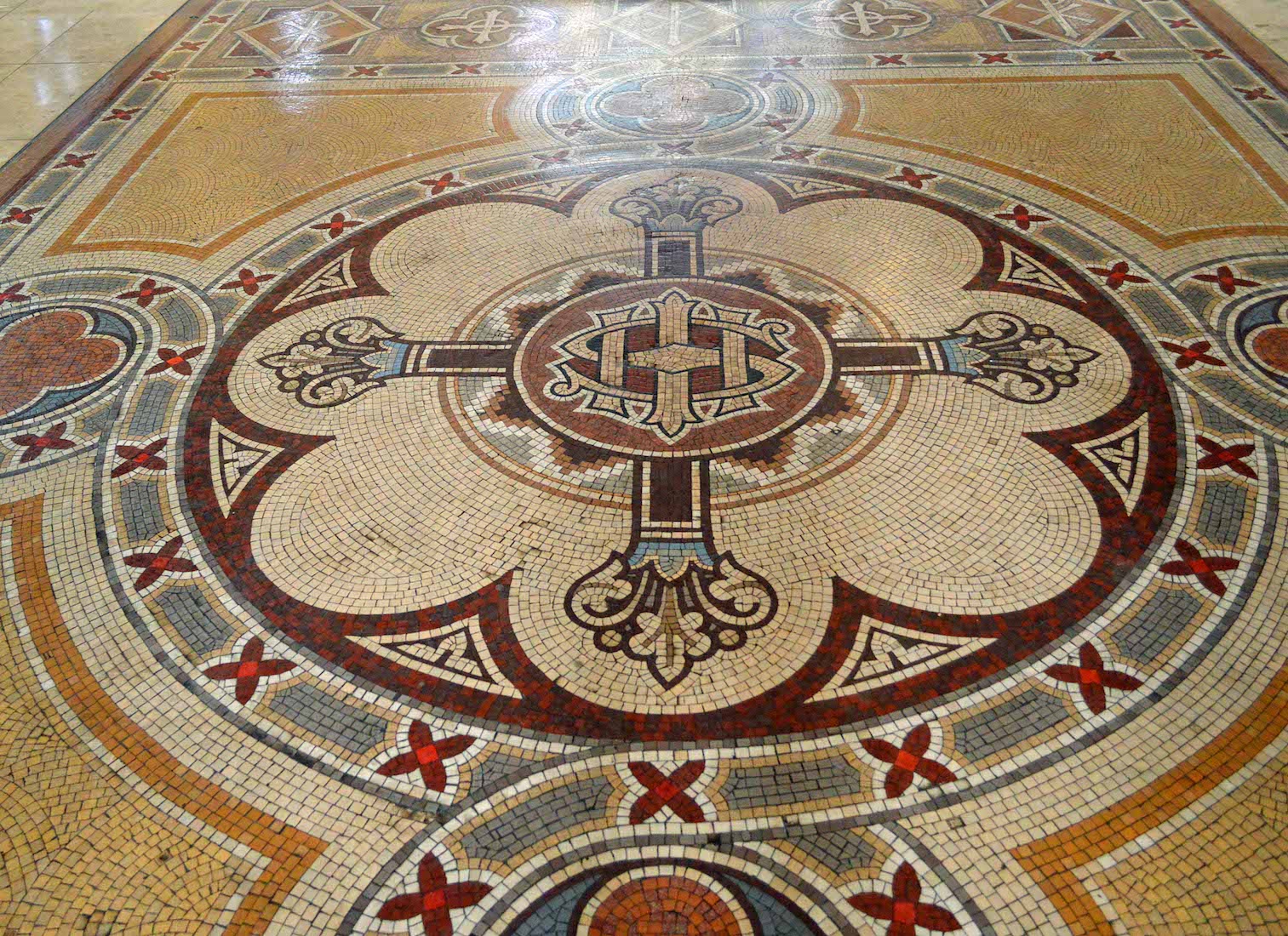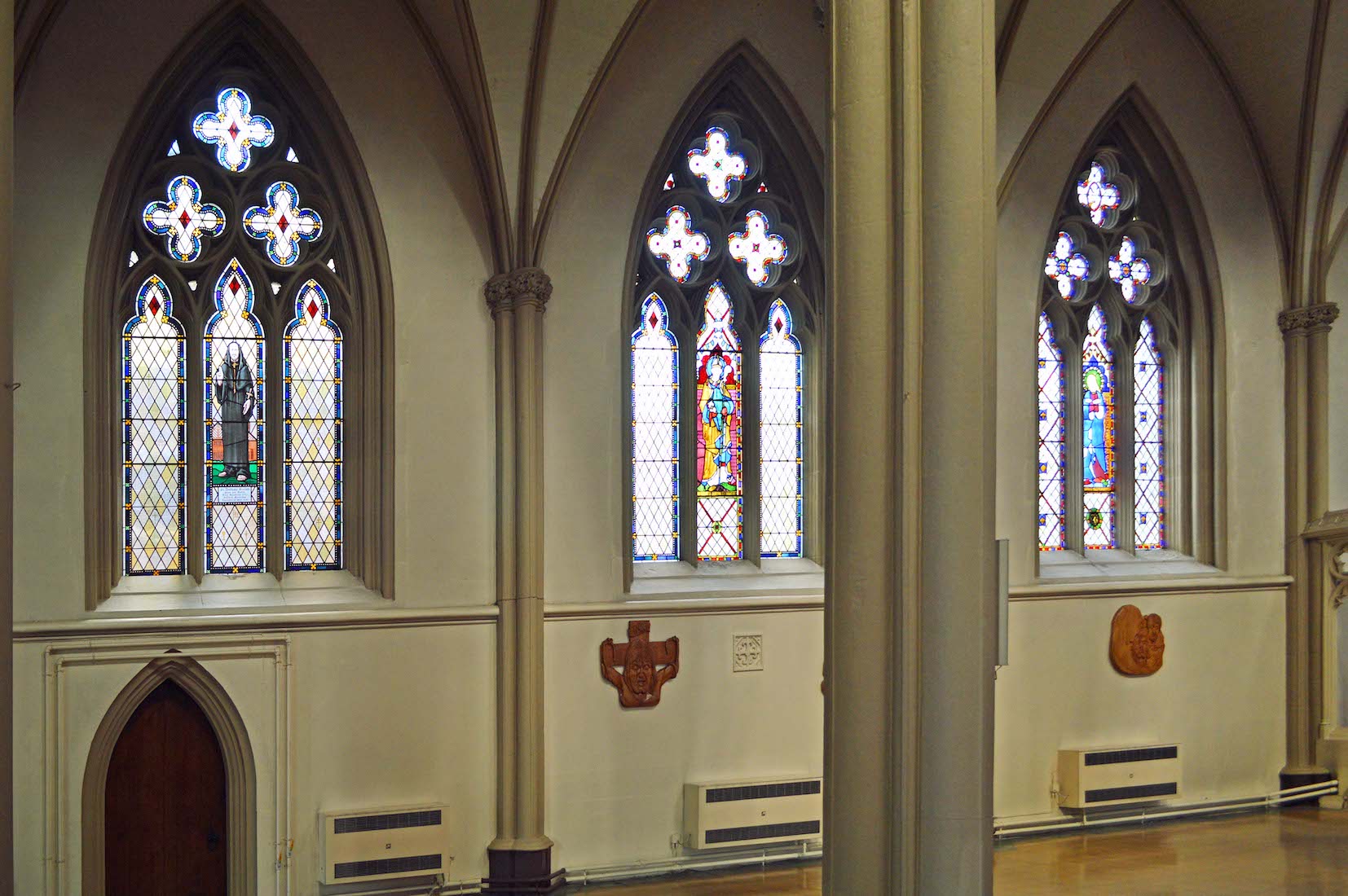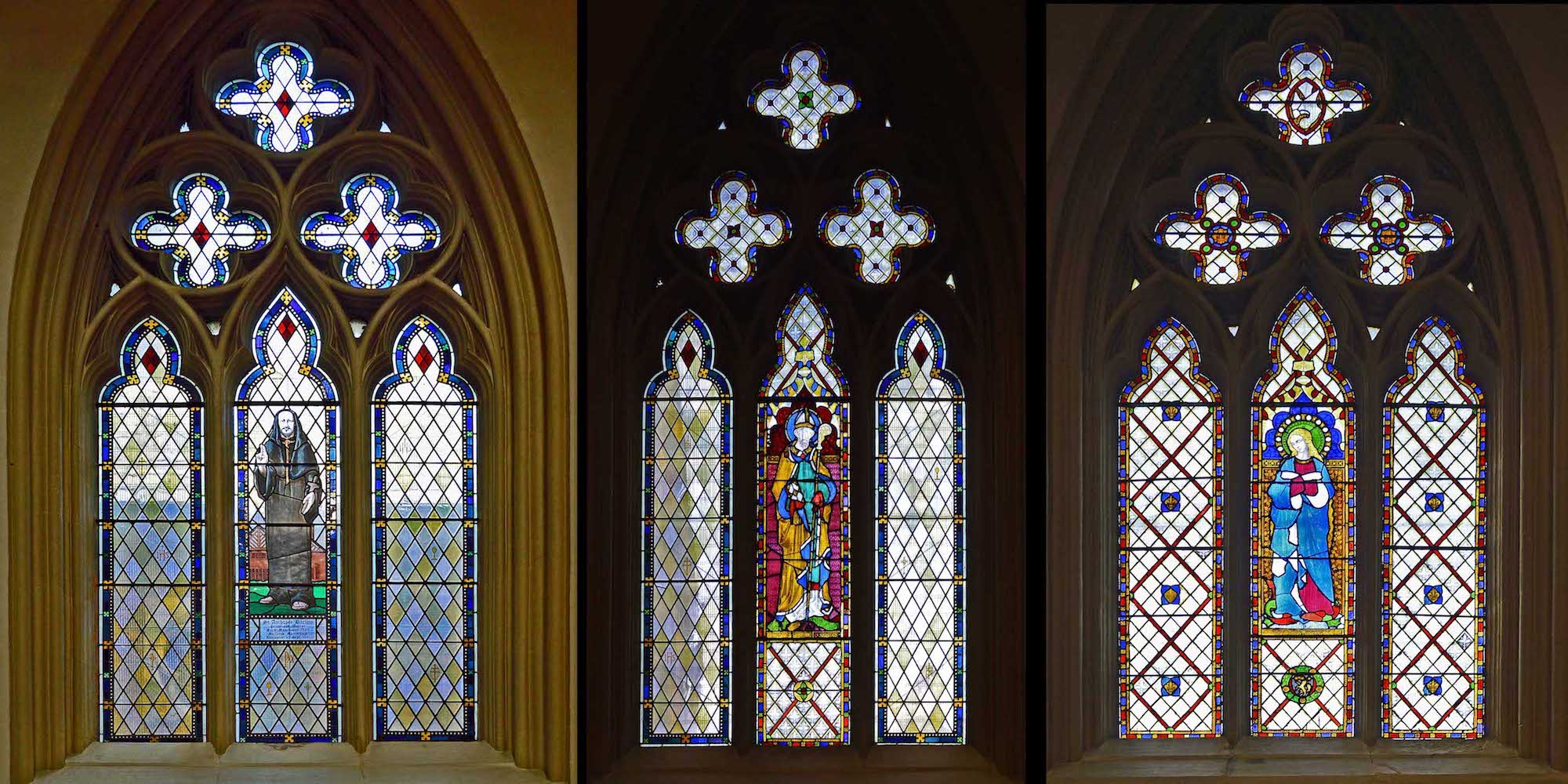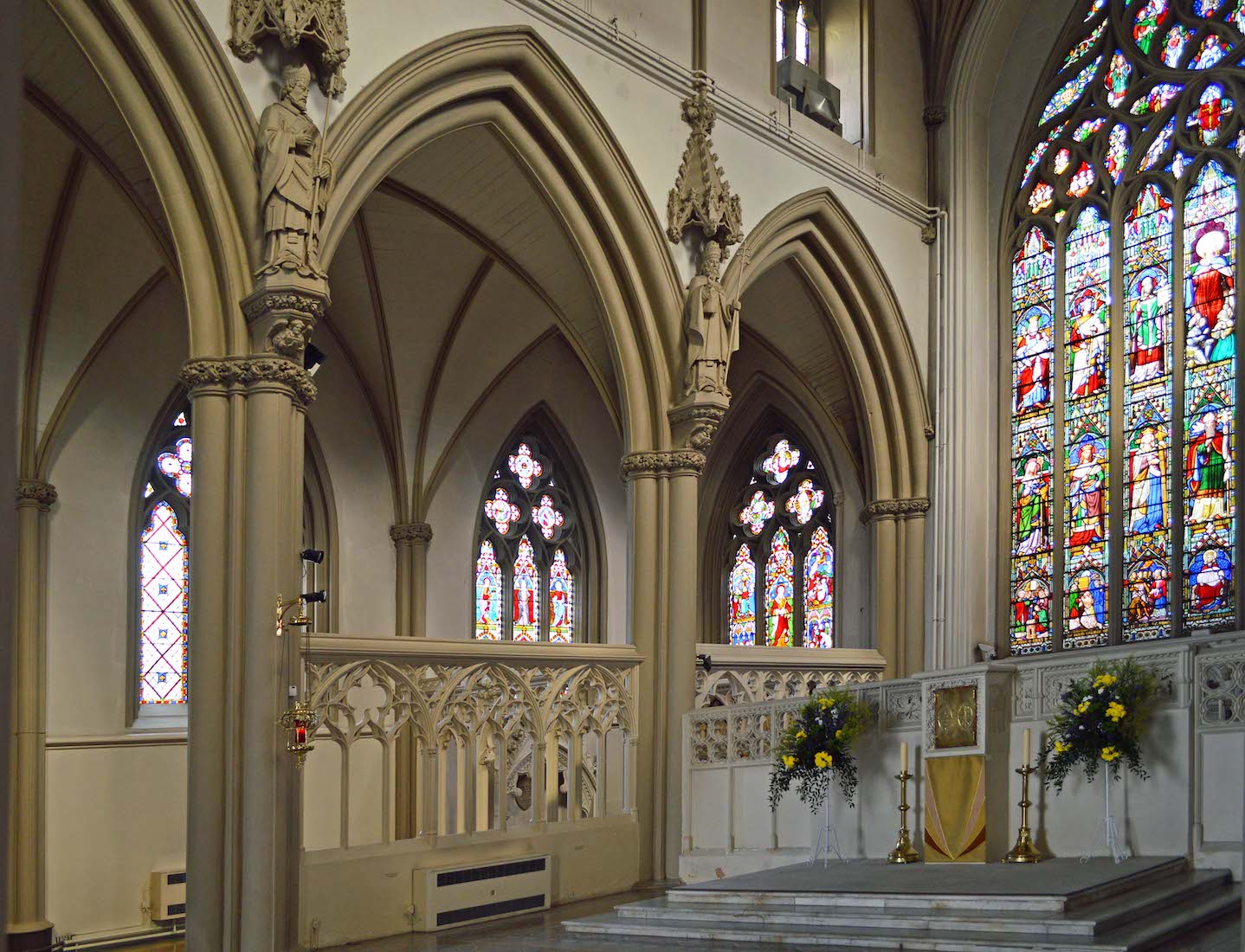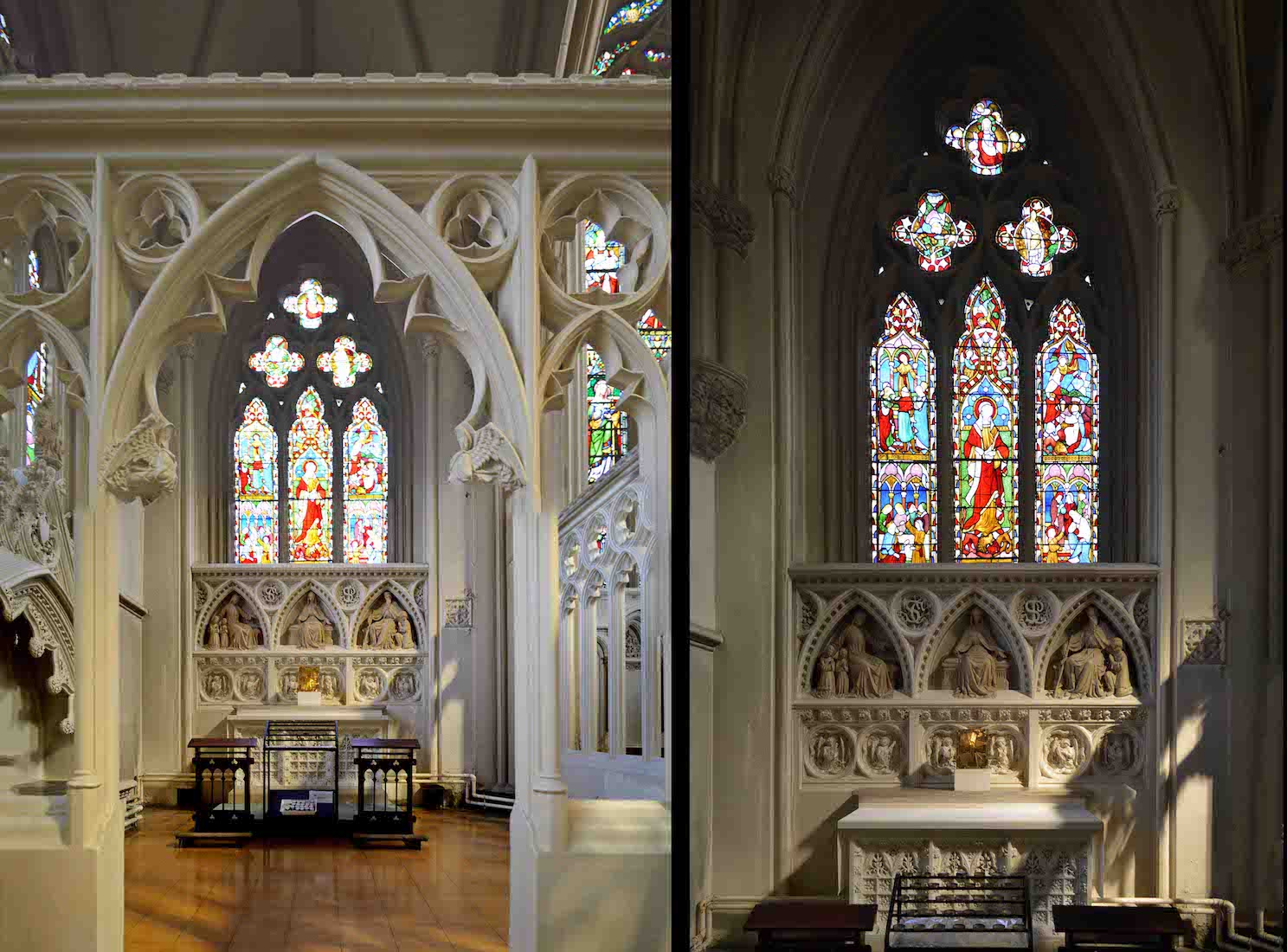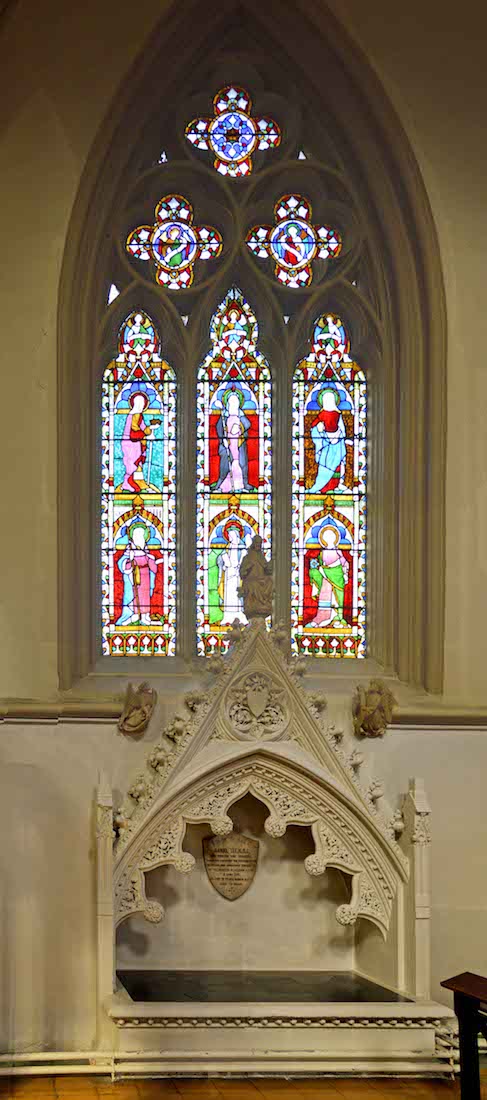41. WEST WALL OF SOUTH TRANSEPT
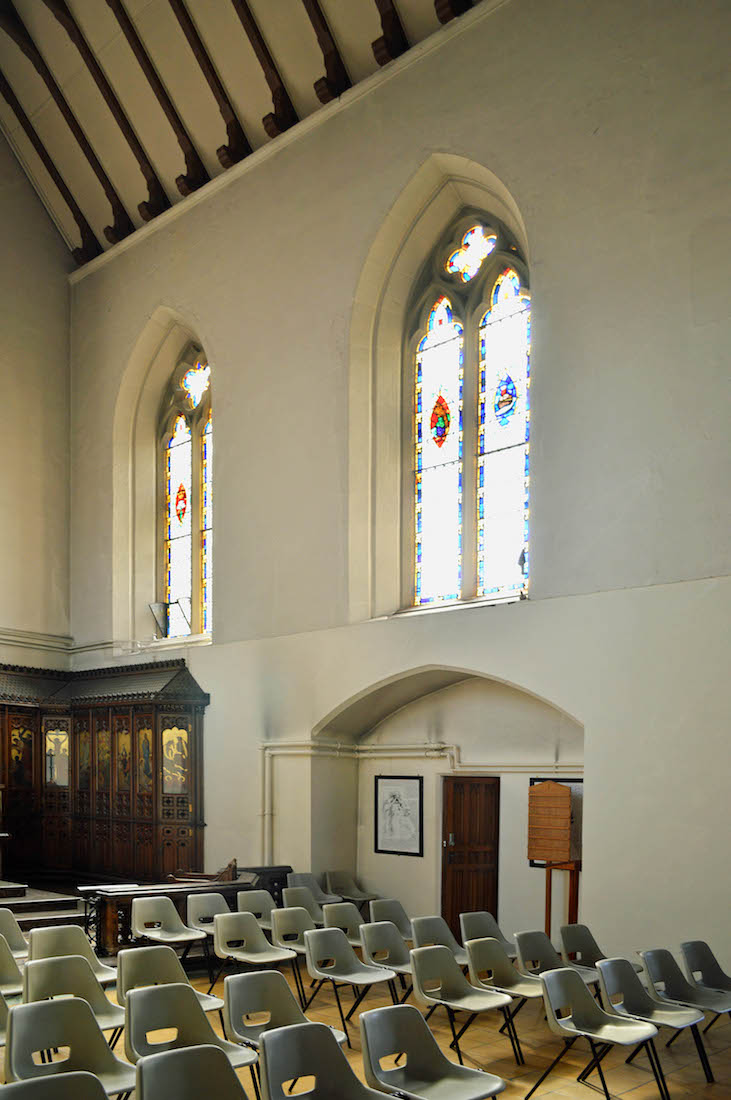
The West wall of the transept is relatively plain. We notice a pair of high windows, and below, an alcove. The doorway leads through into the private confessional area, but there are two prints here which we shall investigate. PLAN
42. WEST WINDOWS OF SOUTH TRANSEPT
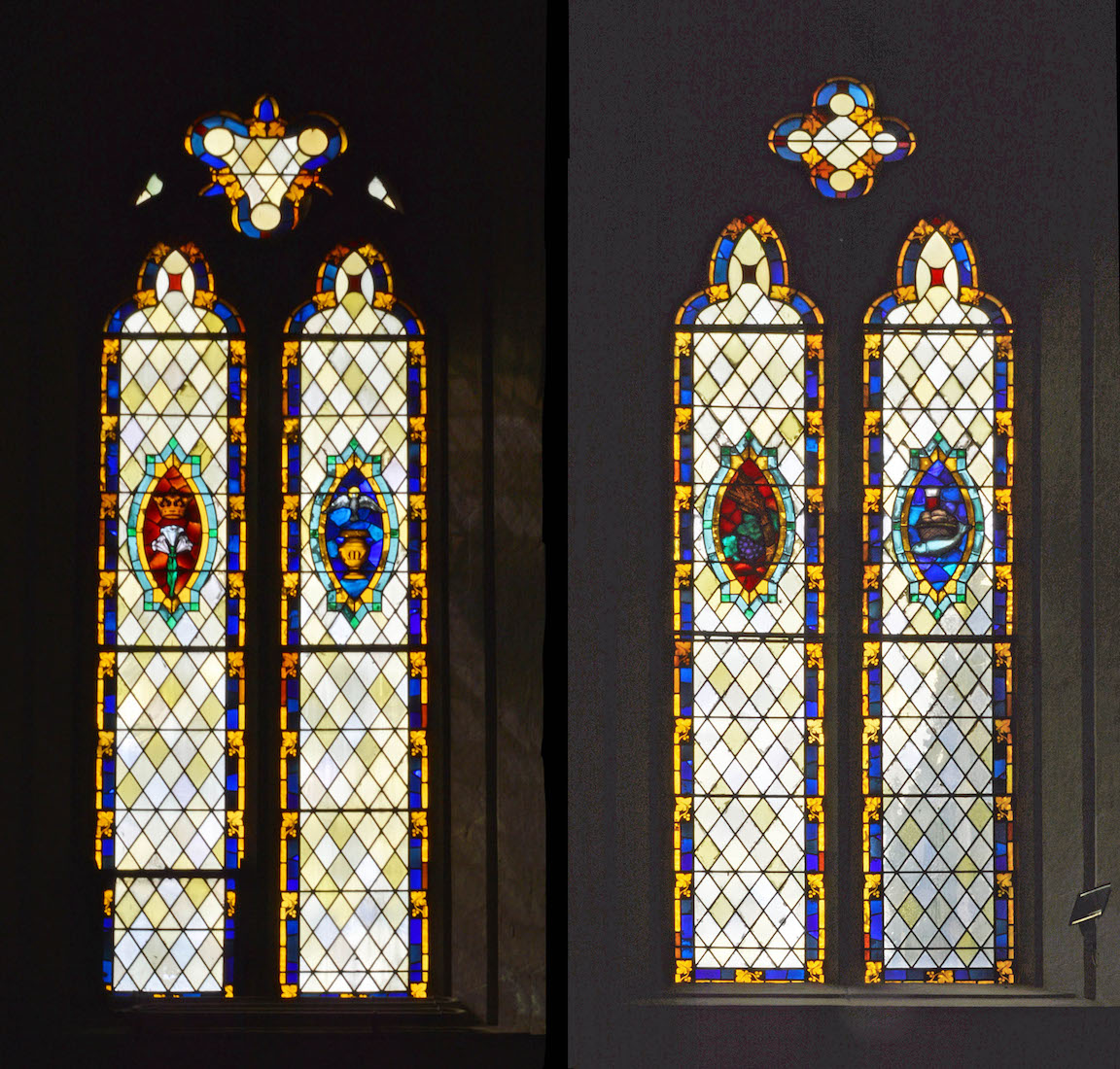
Each of these windows has two lancets, with a Christian image on each. From left we have depicted: • a lily and crown (probably both alluding to Mary); • an urn inscribed with an ‘M’ and a dove of peace above; • a bunch of grapes; • some loaves and fishes (referencing Jesus feeding the multitudes). .
43. PRINTS OF POPE JOHN PAUL II
These prints are on either side of the alcove door. They are the work of artist Harold Riley, executed in 1982, and picturing the visit of Pope John Paul II.
45. WEST CORNER OF NORTH TRANSEPT
The niche on the West wall of the transept contains the altar of Mary, Queen of the most Holy Rosary. This is probably late nineteenth century, with painting on a gold background.
46. ROSE WINDOW, CRUCIFIX
The simple 6-fold rose window has the M-R symbol for ‘Maria Regina’. There is some mathematical interest here in that it is set in a Reuleau triangle – a special triangle with curved sides. I notice the figure of Christ on the Crucifix has blood on his knees – recalling that He fell several times on the way to Golgotha.
47. TRANSEPT MEMORIALS
The floor memorial at the foot of the crucifix remembers Thomas Holland, VIII Bishop of Salford. Holland (1908 – 1999) was an English prelate of the Roman Catholic Church who served as the Bishop of Salford from 1964 to 1983. The effigy is in memory of Bishop Sharples. James Sharples (1797–1850) was an English Roman Catholic bishop. He blessed the foundation stone of St. John’s Church in Salford on 30 May 1844. The church was opened in 1848, and subsequently became Salford Cathedral.
48. ENTRY TO WAR MEMORIAL CHAPEL
The Gothic arch in the East wall of the North transept leads through into the spectacular War Memorial Chapel. On the side wall of the arch, an Honour Roll lists the names of men who gave their lives for their country between 1914 and 1916.
49. WAR MEMORIAL CHAPEL
The War Memorial Chapel is very striking. The initial impression is of black and white with a Pietà figure of Mary cradling the broken body of her Son in graphic colour. Our eyes then take in the altar behind with crucifix and candles, the stained glass window, the memorial lists of names to the side ...
50. CHAPEL ROOF PANELS
This is a view of the two outer panels of the Chapel ceiling. These panels are covered with iconic symbols of items relating to the Crucifixion: Veronica’s cloth, Christ’s robe with dice, INRI sign, tools, cross and ladder, whips, nails, crown of thorns and urn.
51. ABOVE THE CHAPEL WINDOW
The War Memorial Chapel roof has a very interesting profile as seen here. At the East end, three faces look out: two young men at the ends, and perhaps Bishop Louis Charles Casartelli in the centre – the incumbent bishop in 1924.
52. INFORMATION BOARDS
There are some information boards in the chapel, giving information about the chapel and its meaning. The chapel contains eight matching memorial Honour Rolls, listing the names of those who died in WWI. One of the boards pictures and describes the Paschendale Window – a memorial stained glass window in Passchendaele, Belgium.
53. CHAPEL HIGH LIGHTS
High up around the chapel are four attractive small windows, each showing an angel with an incense burner.
54. CHAPEL CRUCIFIX, EAST WINDOW
At the East end of the chapel there is a stained glass window and a crucifix. The window has three lancets and has an overall theme of sacrifice. For example, at left top is a picture of Abraham about to sacrifice Isaac. The central lancet shows Christ about to break a wafer. Below, two angels hold a chalice.
55. CHANCEL CENTRAL MOSAIC
We leave the War Memorial Chapel and return to the chancel. At centre is this interesting swirling mosaic wth the IHS (Jesus) symbol in the middle. The chancel has an open aisle on either side, leading to the Lee and Leeming chapels respectively.
56. NORTH CHANCEL AISLE
There are three windows along the North chancel aisle, but little else in the way of decoration apart from some Stations of the Cross.
57. NORTH CHANCEL WINDOWS
Each of these three-lancet windows depicts a saint in the middle panel. The window at left shows St Ambrose Barlow, Priest and Martyr. Born in Manchester in 1585, he suffered martyrdom in Lancaster on 10 Sept 1641. The text on the two windows at right is illegible.
58. NORTHEAST CORNER
We look across the sanctuary to the Lee Chantry in the far corner. In the left foreground we can see the red sanctuary lamp indicating the presence of the Reserved Sacrament. At the tops of the columns are two of the (in fact) six saints who keep watch over the sanctuary. And the Lee Chantry is demarcated by open arched screens.
60. DANIEL LEE MEMORIAL
The niche in the wall of the chantry contains a memorial to Daniel Lee. The plaque reads: ‘Pray for the soul of Daniel Lee, K.S.C, who erected this chantry, zealously promoted the building of this cathedral, and generously contributed to the charities of religion during a long life. He died in peace March 21, 1877, aged 78 years.’


